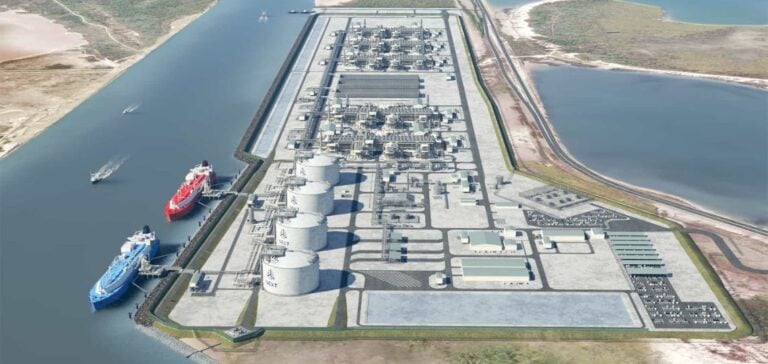The regulation of liquefied natural gas (LNG) export projects in the United States is in a state of flux, particularly with recent developments concerning the Rio Grande LNG and Texas LNG projects.
The Federal Energy Regulatory Commission (FERC) has announced that it will conduct a supplemental environmental assessment for these projects, following a decision by the U.S. Court of Appeals for the D.C. Circuit.
This decision, issued on August 6, 2024, vacated and remanded the certificate authorizations for these facilities, highlighting deficiencies in the analysis of impacts on environmental justice and air quality.
LNG projects, aimed at increasing U.S. export capacity, face heightened regulatory risks.
FERC has indicated that new environmental studies, expected to be finalized by the end of July 2025, will examine the environmental impacts identified by the court.
This includes a reassessment of environmental justice impacts and a revised air quality analysis, as well as an evaluation of alternatives to the project, including carbon capture and storage (CCS) systems.
Impact of court rulings on LNG projects
Regulatory delays pose significant challenges for developers, particularly Rio Grande developer NextDecade, which has already begun construction on the first phase of its project.
The court ruled in favor of the environmental groups challenging the project approvals, claiming that FERC had not sufficiently considered environmental justice impacts.
In response, NextDecade asked FERC to withdraw its CCS proposal, which could have implications for the viability of the project.
FERC also clarified that the final environmental reports for both projects will be based on the agency’s previous analyses, including those from 2019.
These new studies are crucial in determining whether FERC will re-grant the necessary permits for the construction and operation of the LNG facilities.
The Rio Grande and Texas LNG projects, which aim to meet the growing demand for LNG in international markets, must navigate a complex and constantly evolving regulatory landscape.
Business developments and future prospects
NextDecade announced a final investment decision (FID) in July 2022 for the first phase of its project, which comprises three liquefaction trains with a production capacity of 17.6 million metric tons per year.
The company had planned to make a decision on a fourth train by the end of 2024, after signing an engineering, procurement and construction contract with Bechtel.
A total of five trains were proposed, which could increase the terminal’s production capacity to around 27 million tonnes per year.
Meanwhile, the Texas LNG project, which has a capacity of around 4 million tonnes per year, has also announced several commercial agreements in 2024 to support its goal of commercial sanction by the end of the year.
These developments underline the strategic importance of these projects for the USA, as it seeks to strengthen its position in the global LNG market.
However, regulatory uncertainties and legal challenges could influence developers’ ability to realize their ambitions.
Analysis of environmental and regulatory issues
The new environmental studies requested by FERC are intended to address concerns raised by the court regarding the analysis of environmental impacts.
The court criticized FERC for failing to issue additional environmental impact studies on environmental justice for each project, as well as for its assessment of CCS for the Rio Grande project.
In addition, the commission did not explain why it had chosen not to consider air quality data from a nearby monitor, which was also a point of contention.
FERC had originally approved the Texas LNG and Rio Grande LNG projects, as well as the Rio Bravo natural gas pipeline, in November 2019.
However, the court found flaws in the climate considerations and environmental justice analysis, leading to a remand of the approvals back to FERC without rescinding them.
The commission reauthorized the projects in April 2023, but legal challenges persist, further complicating the situation for developers.
Outlook for future LNG projects
LNG projects in the United States, particularly Rio Grande and Texas LNG, are at a critical crossroads.
Recent regulatory and judicial decisions highlight the tensions between economic development and environmental concerns.
As companies seek to meet the growing demand for LNG in international markets, they must also navigate an increasingly demanding regulatory environment.
The results of new environmental studies and future FERC decisions will determine the future of these projects.
Developers must not only comply with regulatory requirements, but also anticipate the reactions of environmental groups and local communities.
The ability of the United States to maintain its position in the global LNG market will largely depend on how these challenges are met.






















